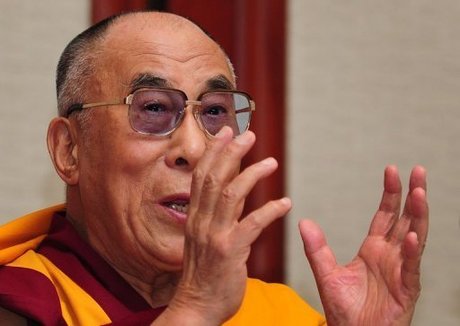China Slams British PM's Dalai Lama Meeting

China said Tuesday British Prime Minister David Cameron's meeting with the Dalai Lama was an "affront to the Chinese people", and launched "solemn representations" with London.
The statement from the Chinese foreign ministry came after Tibet's exiled spiritual leader held a private meeting with Cameron during a visit to London to receive one of the world's most lucrative prizes.
"This is a serious interference in China's internal affairs and an affront to the Chinese people, undermining China-UK relations," said ministry spokesman Hong Lei.
Hong said Beijing had officially protested the meeting in London and with the British embassy in the Chinese capital.
He urged Britain to "take immediate and effective measures to undo the damage and adopt concrete actions to uphold the larger interests of UK-China relations".
China has in the past strongly objected when the Dalai Lama has met Western leaders.
The meeting with Cameron and with Deputy Prime Minister Nick Clegg on Monday was described as "private" and was not held at the prime minister's Downing Street residence.
The Dalai Lama -- a Nobel Peace Prize laureate -- was in London to receive the £1.1 million ($1.8 million) Templeton Prize, which he said he would donate to charity.
The Tibetan leader, who fled his homeland for India in 1959 after a failed uprising against Chinese rule, announced last year that he was giving up his political role and would focus on spiritual duties.
Nonetheless, Beijing has repeatedly accused him of trying to split Tibet from the rest of China and encouraging Tibetan protesters in the vast Himalayan region to set fire to themselves -- a charge he denies.
A total of 34 Tibetans, many of them Buddhist monks and nuns, are reported to have set themselves on fire in China's Tibetan-inhabited areas since the start of 2011 to protest against Beijing.
China has imposed tight security to contain simmering discontent in Tibetan regions since 2008, when deadly rioting against Chinese rule broke out in Tibet's capital Lhasa and spread to neighboring Tibetan-inhabited regions.
Many Tibetans in China complain of religious repression and a gradual erosion of their culture because of a growing influx of majority Han Chinese to their homeland.
China denies any persecution and says it has improved the lives of Tibetans with investment in infrastructure, schools and housing and by spurring economic growth.
Twelve Nobel laureates including South African Archbishop Desmond Tutu have urged China's president to resume talks with the Dalai Lama.
In an interview with Britain's Sunday Telegraph newspaper published at the weekend, the Dalai Lama was quoted saying he had been warned by sources within Tibet of a plot by Chinese agents to assassinate him.
He was allegedly to be poisoned by Tibetan women posing as devotees seeking his blessing -- a claim he said he had no way of verifying.



